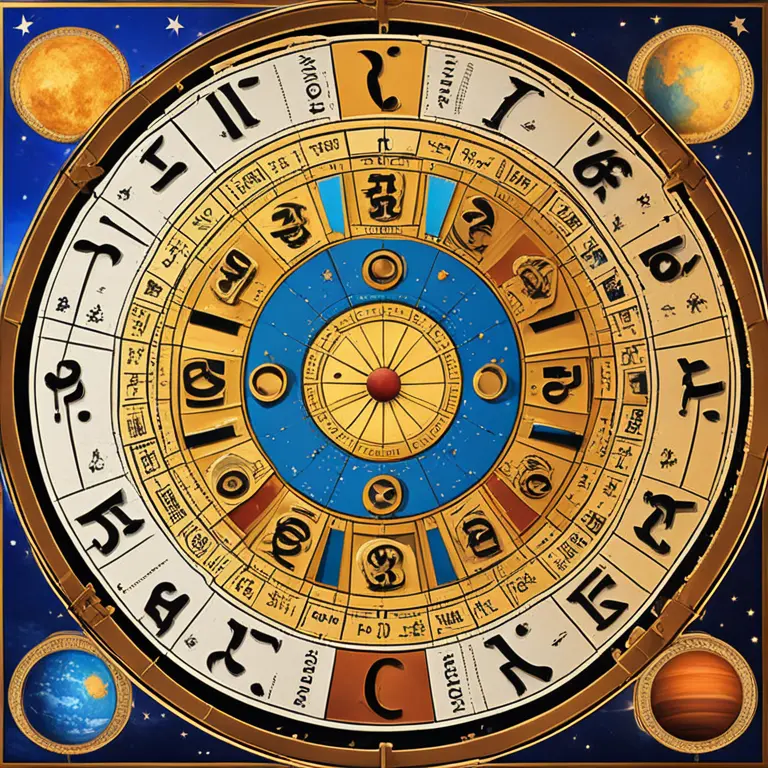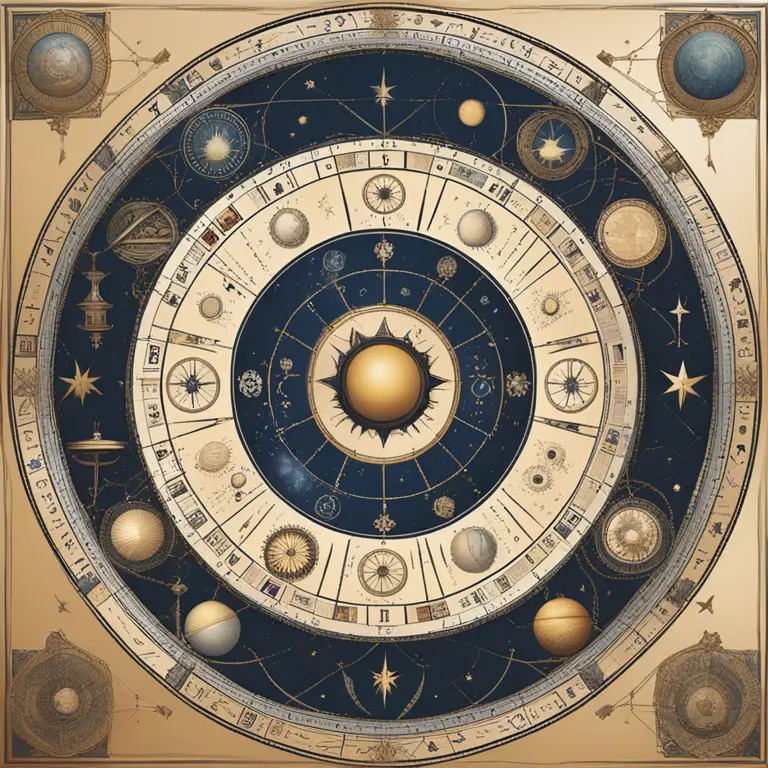
Astrology vs. Zodiac: Is There a Difference?
Discover the distinctions between astrology and zodiac, and how these celestial frameworks shape our understanding of personalities and destinies.
article by Priya Deshmukh
Astrological Foundations
Astrology is a broad field that extends beyond the familiar horoscopes in daily newspapers. It's an ancient practice that looks to the heavens for insights into human affairs and natural phenomena. With a history that dates back thousands of years, astrology encompasses the position and movement of celestial bodies to interpret their influence on earthly events. While contemporary science challenges its empirical validity, astrology remains a topic of interest and spiritual guidance for many. In essence, it is a complex system linking the cosmos to our personal experience.

Zodiac: A Segment of Astrology
The zodiac, in contrast, is specifically a belt of the heavens within about 8° on either side of the ecliptic that includes the apparent paths of the sun, moon, and principal planets. It's divided into twelve equal parts, each named after the constellation it contains: Aries, Taurus, Gemini, and so forth. While the zodiac is a critical component of astrology, providing a framework for astrological predictions, it's not a standalone system. The zodiac signs are simply one of the many tools astrologists use to create horoscopes and provide spiritual insights.

Signs vs. Planetary Influence
A fundamental distinction between astrology and the zodiac is the scope of their focus. The zodiac is concerned with the specific twelve signs and their corresponding dates, personality traits, and potential life outcomes. Astrology, however, also considers the planets' positions in these signs, as well as their aspects and angles to one another, thereby offering a more nuanced and intricate reading of the celestial influences at play. It is this combination of planetary positions, signs, and houses that forms the basis of an individual's natal chart, providing a personalized astrological profile.

Horoscope: A Daily Dose of Astrology
Horoscopes are perhaps the most well-known expressions of astrology, often conflated with zodiac signs. These forecasts are based on the position of the sun at an individual's time of birth—their sun sign—and are supposed to provide guidance for daily life. While horoscopes are derived from astrological principles, they only skim the surface of this rich tradition. A full astrological reading goes much deeper than the daily advice tied to zodiac signs, encompassing the full range of celestial dynamics.

Evolution of Astrological Practices
Astrology has evolved significantly since its inception, particularly as new astronomical discoveries have been made. The field has adapted, integrating new planets and celestial objects into its readings. Additionally, astrologers have worked to remain relevant by considering psychological insights and modern life complexities. Even in 2024 and beyond, astrology continues to innovate, blending ancient wisdom with contemporary understanding in an effort to resonate with people seeking cosmic guidance.
Personal Discovery Through Celestial Maps
Whether one believes in astrology or regards it with skepticism, it provides a unique lens for personal introspection. Beyond just knowing one's zodiac sign, diving into a full astrological chart can offer profound insights into one’s strengths, weaknesses, and potential life path. While the zodiac can act as a gateway to this journey, astrology's broader context allows for a deeper exploration of the self in relation to the universe's vastness.
Published: 1/12/2024
Modified: 1/12/2024
More predictions
Come back here soon to learn more about yourself and your future


The Historical Journey of Zodiac Signs
Embark on a historical journey to discover the inception of the zodiac signs and their influence on astrology today.


Zodiac Sign Compatibility Handbook
Discover the astrological insights into which zodiac signs harmonize in love, friendship, and life with our Zodiac Sign Compatibility Guide.


The Mystique of Zodiac Water Signs
Dive into the emotional depths of the Zodiac water signs – Cancer, Scorpio, and Pisces – and discover the profound insights they offer.